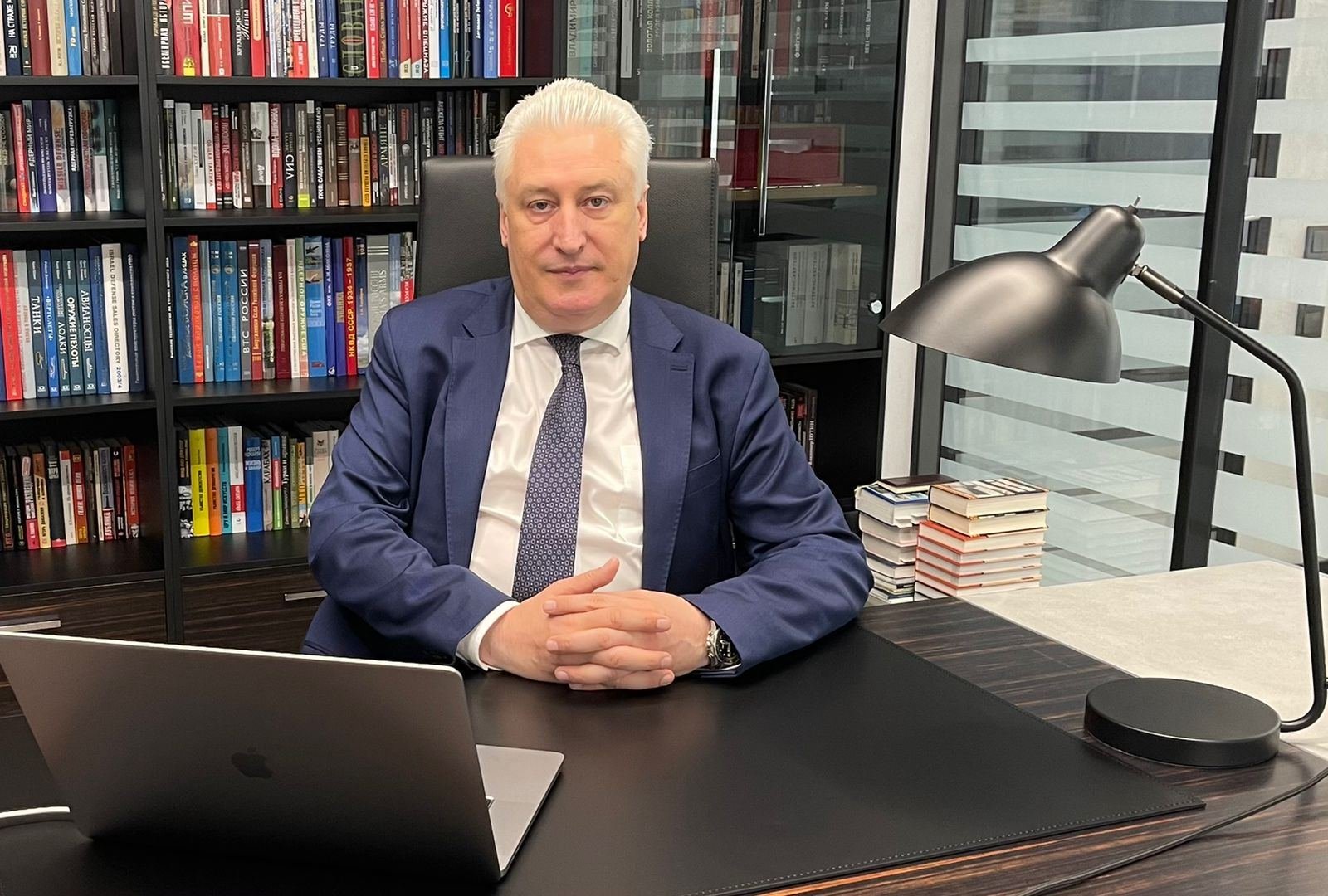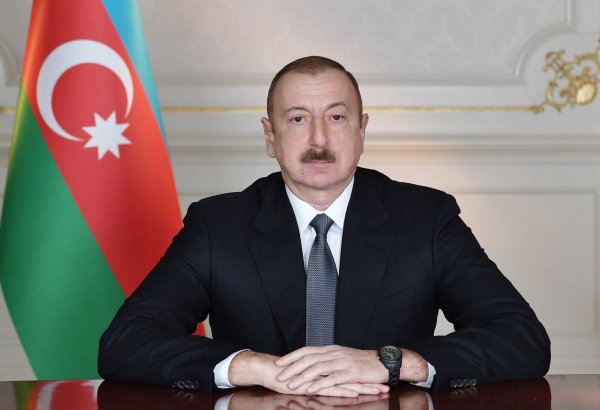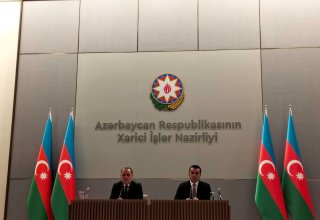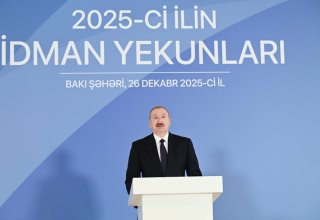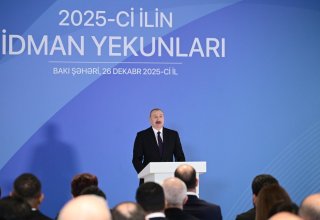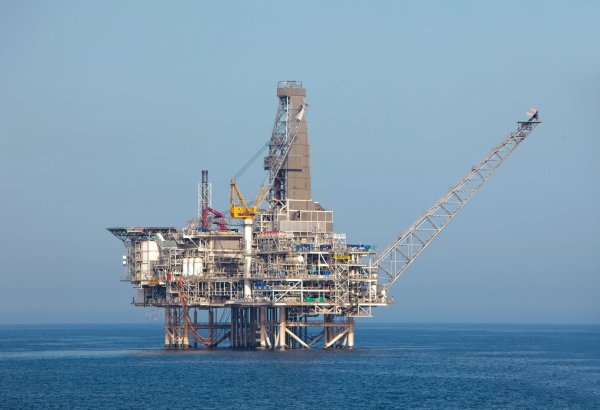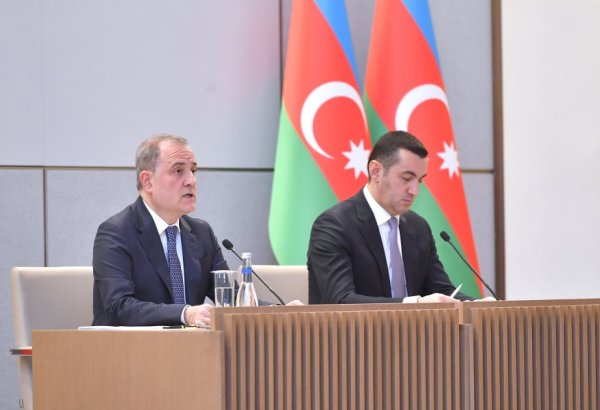BAKU, Azerbaijan, November 6. The political will of President Ilham Aliyev has become a decisive factor in making Azerbaijan one of the most successful countries in Eurasia, CEO of the Caspian Institute for Strategic Studies (Russia), Editor-in-Chief of the National Defense Magazine, Igor Korotchenko told TurkicWorld.
"Since taking office, Azerbaijani President Ilham Aliyev has worked to establish an effective and powerful state. Azerbaijan is a small country, but because of strategic goal-setting, political experience, and great analytical and intellectual abilities, President Ilham Aliyev has emerged as one of the world's leading politicians. Of course, President Ilham Aliyev's practical activity has allowed Azerbaijan to significantly strengthen its financial and economic base, build a strong, diverse economy, and create an effective political system that best meets the needs of the state. Azerbaijan has also begun to create and form one of the best armies, not only in the South Caucasus but also in the world," he said.
Igor Korotchenko noted that the results and outcomes of the 44-day second Karabakh war are unprecedented in modern military history.
"No modern country can claim such a feat. Actually, this basis allowed, once again, in response to Armenian armed provocations and in response to the notorious Tonoyan doctrine, in which Armenia declared its right to occupy more and more districts of Azerbaijan in the event of a new war, in response to threats that Armenian tanks would reach Baku, and finally, in response to a large-scale armed provocation, to launch a counter-offensive action on September 27, 2020, which ended, as we know, disastrously," he said.
Igor Korotchenko emphasized that a practical result does not come from nothing.
"A practical result is preceded by decades of persistent, hard, and painstaking work. Certainly, the fact that Azerbaijan managed to restore its territorial integrity, to become one of the leading countries in the world, to lead the Non-Aligned Movement, and to formulate a number of global political initiatives, which are discussed in the UN Security Council and at the Non-Aligned Movement forums, is the result of the fact that President Ilham Aliyev changed Azerbaijan and created one of the most successful countries not only in the South Caucasus and the post-Soviet space but also in Eurasia. In this regard, of course, both critics and friends of Azerbaijan note this personal political success of President Ilham Aliyev," he said.
Speaking about the level of Azerbaijani-Russian interaction, the editor-in-chief of the National Defense magazine stressed that Moscow sees Baku as a reliable, effective partner and ally. He added that it is very important that a declaration on allied interaction has been signed and is in force between Russia and Azerbaijan.
"This document was signed by President Ilham Aliyev and President Vladimir Putin. The leaders of our countries are bound by relations of cooperation, mutual respect, and understanding of each other. This is a very rare quality in world politics, when two presidents can trust each other and always rely on those agreements, both formal and verbal, that are reached in the process, including closed negotiations. Therefore, the restoration of Azerbaijan's territorial integrity will undoubtedly serve as a new factor in strengthening interaction between our countries to build a better, more fair society, to which we all aspire. And of course, Russia sees Azerbaijan as a reliable, effective partner, an ally with whom we will overcome any challenges together in the current very complex and turbulent military-political situation," he said.
As Igor Korotchenko emphasized, Azerbaijan was subjected to unprecedented political pressure, but not a single attempt by the West was successful.
"First, there were strong sentiments in favor of keeping a separatist enclave in Azerbaijan in order to influence Azerbaijan and manipulate Baku. France, the EU, and the United States were particularly aggressive in pursuing this agenda. That is, where the global Armenian lobby's views are strong, acting as an autonomous topic of geopolitics today, with vast financial and political capacities, and influencing political decisions made in specific countries. We see that a lot in France and the US. As a result, Azerbaijan was subjected to unprecedented pressure," he said.
The expert added that this anti-Azerbaijani policy continued even after the end of the 44-day second Karabakh war.
"But, more importantly, when it began anti-terrorist operations in Karabakh, the West intended to exert huge influence on Azerbaijan. However, because the military triumph was accomplished in less than 24 hours, all of the political leverage that the West and the global Armenian community attempted to exert on Azerbaijan proved ineffective. A total military triumph was accomplished in less than a day; the separatists capitulated, and the amazing quickness with which military success was achieved deprived the West of any levers of pressure in this regard," he said.
As Igor Korotchenko noted, the trilateral statement was not just the end of the second Karabakh war, as a result of which the Armenian Armed Forces were defeated and Yerevan was forced to capitulate, but also a triumph of the diplomatic strategy of Azerbaijani President Ilham Aliyev.
"De facto capitulation was formalized in the form of a trilateral statement by the leaders of Russia, Azerbaijan, and Armenia. Thanks to the trilateral statement, Azerbaijan was able to establish control over a number of previously Armenian-occupied areas without military action. In addition to the purely political significance of the trilateral statement, it is also a triumph of the diplomatic strategy of Azerbaijani President Ilham Aliyev, who was able to achieve the liberation of a number of occupied Azerbaijani districts without hostilities by signing this document," Igor Korotchenko said.
According to him, the trilateral statement recorded the political and military results of the second Karabakh war, particularly Armenia's obligation to completely withdraw all armed units from the territory of Karabakh.
"The text of the trilateral statement envisaged the establishment of a transportation route regime that would connect Karabakh Armenians residing in the region with Armenia. Important milestones were also accomplished in order to open transportation communications. However, we can now claim that none of Armenia's commitments under the trilateral statement have been met. Armenian illegal armed groups remained active in the region, carrying out terrorist actions and provocations. Pashinyan did not open the Zangezur corridor, which was to be supervised by the Border Service of Russia's Federal Security Service, according to the trilateral statement. None of the promises were met in total. As a result, anti-terrorist operations in 2023 will mark the end of a long struggle that has lasted several decades," Igor Korotchenko said.








